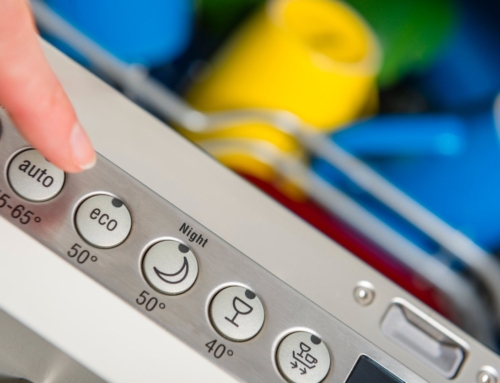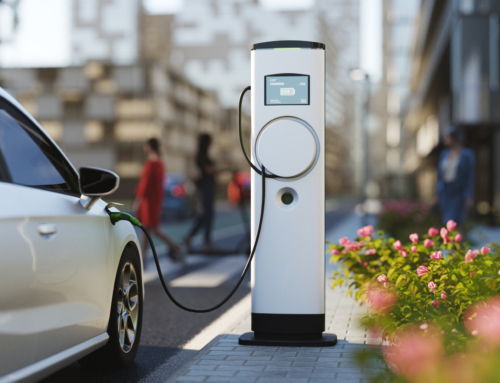When it comes to energy efficient appliances, do Energy Star appliances really save money? The honest answer is that it depends. If your current refrigerator and other appliances are over a decade old, they weren’t created with the same energy standard requirements as new appliances and probably aren’t running as efficiently as they could.
Considering that the average US household has an average energy cost of $2,200 per year, purchasing energy-efficient appliances can make a significant impact on your wallet and budget. However, it’s important to keep in mind that if most of your appliances are only a few years old (even if they’re not Energy Star appliances) you probably won’t see a dramatic decrease to your monthly energy bill by purchasing new ones. Learn more about the answer to “Do Energy Star appliances really save money?” and what to look for when you purchase them so you can make the most of your energy savings.
How Much Do Energy Star Appliances Cost?
The overall cost of energy savings by using Energy Star appliances can be significant, but if the upfront cost of the appliance is too high you’ll end up offsetting any savings you might accrue over time. Because of this, it’s important to consider whether purchasing an Energy Star appliance is less expensive or similar in price to non-Energy Star appliances.
Several years ago, Energy Star appliances cost $30-$200 more on average than appliances that were not Energy Star certified. However, as the demand for energy-efficient appliances has increased, the prices for Energy Star products have also gone down. Today, there are more Energy Star certified appliances than non-certified appliances, and the cost for a high-quality energy-efficient appliance is usually the same or less than a non-energy efficient appliance.
How Do Energy Star Appliances Really Save Money?
To answer “Do Energy Star appliances really save money?” you need to consider the monthly, yearly, and lifetimes savings you’ll realize on your new appliance. There are a couple main ways Energy Star appliances save you money, including tax credits, energy savings on your monthly bill, and even company rebates for using energy-efficient appliances.
Energy Savings
Upgrading your old appliances can have a significant impact on your monthly bill, depending on how old your current appliances are. While new appliances can save you money on utility bills, there are some that can save you more than others. Washers, dryers, dehumidifiers, air conditioners, and air purifiers all tend to have higher monthly savings than dishwashers, refrigerators, and freezers. If all your appliances are Energy Star certified and running efficiently there is a potential savings of over $100 per year and up to $600 over the course of 5 years.
Tax Credits
Aside from enjoying a low utility bill each month, Energy Star products may receive tax credits and some retailers even offer tax-free purchase periods, depending on the state. These “tax holidays” were created to encourage people to purchase energy-efficient appliances that are not only easy on the budget but also good for the environment.
Credits and Savings for Using Energy Star
Another place to look for some great savings is through your energy company. Some companies offer credits and savings for using Energy Star appliances. If you’re replacing your old appliances with new, energy-efficient ones, you might be able to get credit for recycling your old appliances. Check with your energy company to find out if they offer a rebate program. Some companies will even come to pick up your old appliance for you. (Learn more, and find a recycler on the EPA’s Responsible Appliance Disposal (RAD) page.)
Tips for Choosing New Energy Star Appliances
Now that you’ve decided to take the leap and replace your old appliances with some new Energy Star appliances, you’ll need to know what to look for as you go shopping. Here are some things to look for before you commit to purchasing your new Energy Star appliance.
Check the Label
As you look around at new appliances, make sure you check for the “Energy Star” label to ensure you’re getting the most energy efficiency possible for your money. You should also make sure you check the yellow EnergyGuide label on the appliance so you can compare energy savings between different models. Just because it’s an Energy Star appliance, doesn’t mean it’s the most energy-efficient appliance in its category.
Determine the Size
When it comes to finding a new appliance, bigger doesn’t necessarily mean better. You should determine the size of the appliance you really need in your home and purchase new appliances that suit your needs. Wasted space is also wasted energy. An oversized air conditioner, water heater, or refrigerator will end up costing you more on your utility bills and be less environmentally friendly. Here are some things to keep in mind for different household appliances.
- Fridge: The size of your fridge depends on how many people are in your home, how much you like to cook, and how often you entertain. A 14-cubic-foot model is usually a perfect fit for a family of 4. If you have a bigger family, you’ll probably need a bigger fridge. Although a bigger fridge uses more energy, it’s still cheaper to run one big fridge rather than two smaller fridges.
- Air Conditioner: Determine the square footage you need to cool and purchase an air conditioner that is the perfect fit—not too big and not too small.
- Water Heater: The size of your water heater is based on how many bathrooms you have in your home. Similar to an air conditioner, you should make sure your water heater is not too big or too small for your household needs to save the most money.
- Washing Machine: If you have a small household you might consider purchasing a smaller washing machine to do the job. However, if you do lots of loads, a small machine probably won’t cut it for your need. Whatever you choose, make sure you can adjust water level and temperature and that there is a fast spin to reduce drying time.
- Dishwasher: Look for dishwashers that have energy saving cycles and ones that use fans rather than heating coils to dry dishes so you can save more money and do what’s best for the environment.
Watch the Savings Add Up
It takes a little patience, but over time you’ll see the savings on your monthly bill translate into real savings over the life of your appliance. Replacing appliances that are over a decade old will give you significant savings, and your new energy-efficient appliances will save you money for years to come.
Choose Energy Efficiency
Now that you know the answer to “Do Energy Star appliances really save money?” you know that, while it may not necessarily be worth it to replace newer appliances, homes with a lot of old appliances can see significant reductions to their utility bills by purchasing Energy Star appliances in the future. If you’re interested in reducing your environmental impact further, learn more about Spring Power & Gas today and how you can do more to help the environment. We offer services in Maryland, New Jersey, and Pennsylvania.





![Top 11 Sustainable Building Practices for Eco-Homes [Plus 5 Sustainable Materials]](https://springpowerandgas.us/wp-content/uploads/2023/02/iStock-181062267-500x383.jpg)

